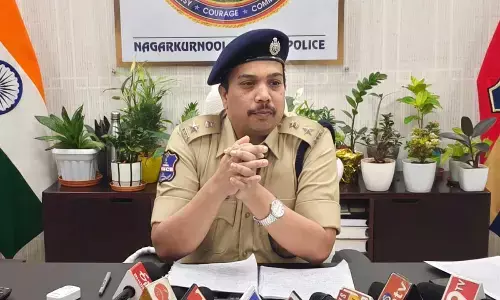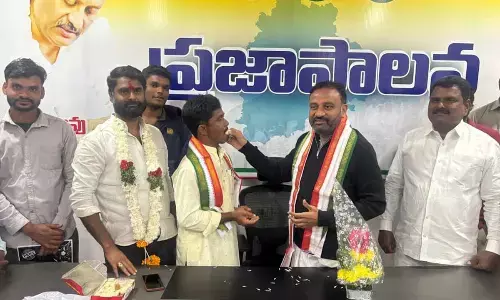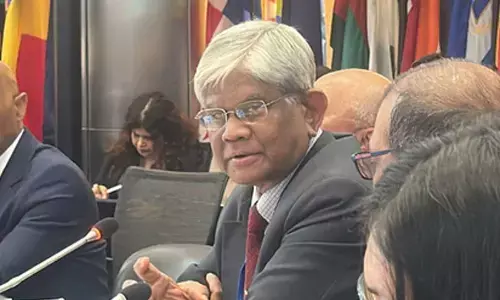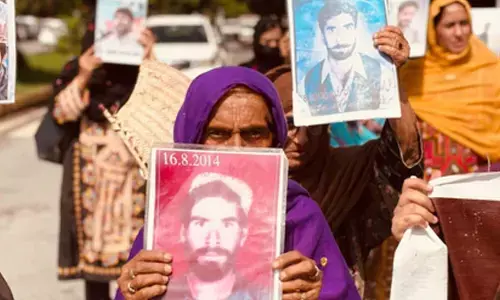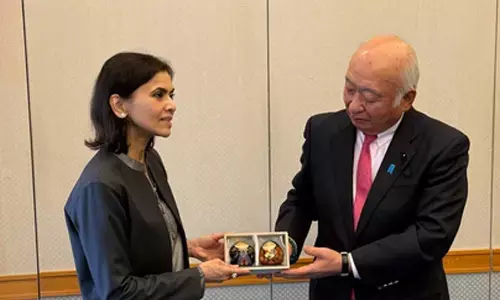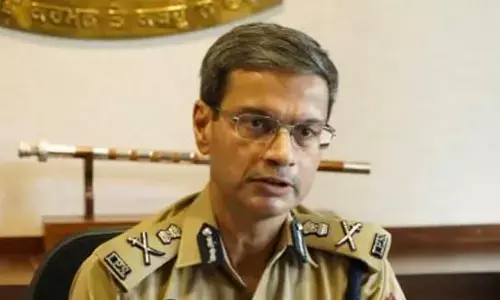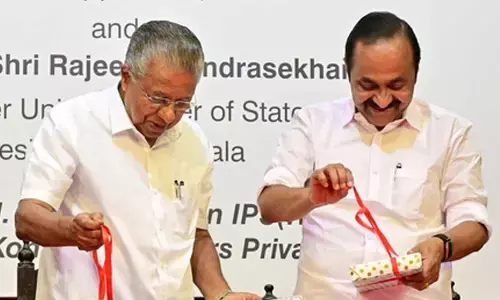BMC's first woman director, Archana Achrekar builds an inclusive legacy
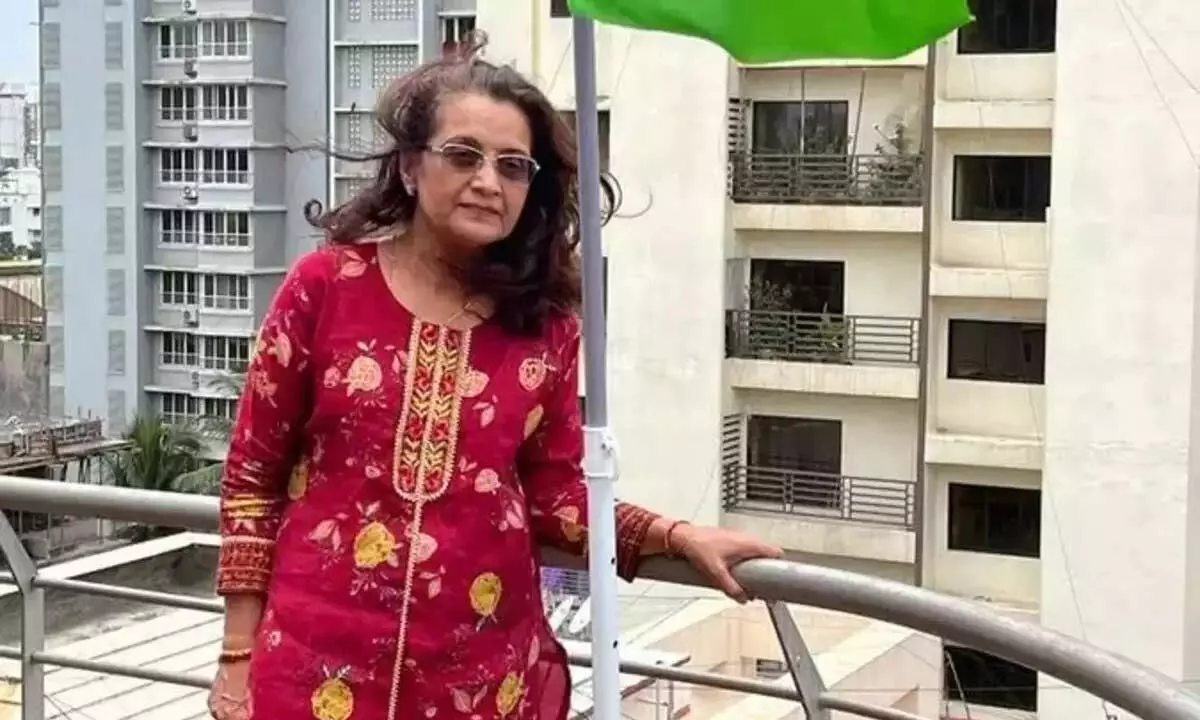
BMC’s first woman director, Archana Achrekar builds an inclusive legacy
From delayed promotions to men who refused to take orders, Archana Achrekar has fought several gender biases and paved the way for more women employees at Brihanmumbai Municipal Corporation (BMC)
From delayed promotions to men who refused to take orders, Archana Achrekar has fought several gender biases and paved the way for more women employees at Brihanmumbai Municipal Corporation (BMC).
Women civil engineers were a rare sight in the country when Archana Achrekar joined the Brihanmumbai Municipal Corporation (BMC) in 1984. Though India got its first female civil engineer in Shakuntala Bhagat almost 30 years prior, things were seldom rosy for Achrekar.
When she landed the appointment in June 2020, Achrekar (60) was the first woman to head the Engineering Services and Projects section at the BMC, in the 132 years of its existence. However, her path was strewn with obstacles: delayed promotions, a misogynistic work atmosphere and restricted access to the field, among other things.
Achrekar studied at Mumbai-based Veermata Jijabai Technological Institute, the same college from where Bhagat graduated in 1953.
"At college, boys would taunt me saying I was wasting a seat. They thought my civil engineering degree was useless as women typically stop going to work after marriage," Achrekar told.
However, she knew how passionate she was about engineering. The aspects of design and fieldwork that she learnt in her final year consultancy project at Gadiyali and Rawal Consulting Engineers truly solidified her passion for civil engineering. That lit a fire in her belly, which she continued to carry with her until her retirement in September last year.
From desk job to fieldwork
Fieldwork was a part of her consultant job. At the BMC, however, Achrekar had to wait for two years to get her first project.
"Back then, women working as field engineers were frowned upon. Therefore, I was assigned a desk job. I was the only woman in meetings; my peers would not take me seriously or hear my project views. But I persisted and got my first fieldwork project in the sewerage department. I wanted to do technical work, and not a desk job of making reports," exclaimed Achrekar.
However, things were not any better on the field either. Achrekar recalled how the men in the team would often stare at her as if they were wondering why she was there at all!
"Those days, the BMC hardly welcomed women engineers. They were far more present in administrative services than in engineering services," Achrekar said.
In the early 2000s, Achrekar had a woman colleague running for a prime engineering position at the BMC. Unfortunately, she was not selected, which discouraged that woman to such an extent that she took voluntary retirement.
Watching her quit, similar thoughts crossed Achrekar's mind as well. Instead of quitting, she decided to share experiences of gender-based microaggressions at the workplace with her female peers in both government and private sector organisations. This helped her feel a sense of solidarity, which boosted her resolve to persist and thrive.
Over the years, Achrekar has managed several BMC projects, the most significant being the AK Vaidya Olympic-sized swimming pool at Chembur and Ramdev Peer Mandir Marg at Kurla. She also built the staff quarters for solid waste management labourers at Kandivali. She was part of the planning team for the redevelopment of Crawford Market and overlooked the concretisation of parts of arterial roads such as LBS Marg, VN Purav Marg and Ghatkopar-Mankhurd Marg.
No longer a man's world
Twelve years after joining the BMC, Achrekar got her first promotion in 1996. There were no women civil engineers with her level of experience. Men around her were not used to having female bosses. Even her male juniors found it challenging to take instructions from her!
When promoted as Deputy Chief Engineer in 2012, she got her own cabin with an attached washroom.
"It was a newly constructed office. However, the washroom had a urinal suitable only for men! It was quite clear that the office was built with the perception that only men would take up that position," Achrekar said.
Not just the office infrastructure, even the policies were designed to keep women away from long-lasting careers. Achrekar recalled that when she gave birth to her sons, only a three-month pregnancy leave was allowed at the BMC.
No childcare leave or childcare centres for working women were present. As a result, she relied on her mother-in-law to raise her children.
"I somehow managed, just like other women from that time. It is a good thing that women now get maternity leave for six months, besides childcare services. It allows them to balance both work and personal life, instead of struggling in both," Achrekar added. A study by Sukhatme and Dr Bharati Parikh at IIT Bombay has observed a positive trend of increased female enrolment in engineering colleges in the 1990s, though with a decreased rate of employment.
Women engineers in the workforce went from 69 per cent in the 1980s to 55 per cent in the 1990s. Achrekar, however, noted that women's participation in the workforce increased in the mid-2000s.
According to the Engineering Workforce Commission, in 2010, women received 19.7 per cent of all civil engineering degrees awarded, as against the 18.2 per cent in all engineering streams.
Moreover, as per a report on women workers in India by the Neville Wadia Institute of Management Studies and Research, the increase in work opportunities in the early years of the new millennium has been to the tune of 9.3 million jobs per annum (from 1999-2000 to 2004-05).
Of the total 46 million jobs created during this period, nearly 15 million went to women.
"A change in mindset came about when the BMC promoted some women in mechanical and electrical engineering to mid-level posts and also started recruiting more women. Today, I see many women civil engineers, working shoulder to shoulder with men. In fact, women engineers have shown how intelligent, dedicated and dependable they are," said Achrekar.
In mentor's role
Achrekar's journey and passion have inspired many women to enter the field. One of her mentees, Ridhi Gurav (32), a Sub-engineer (Civil) at the BMC, said Achrekar was a supportive superior who helped evoke a strong sense of self-actualisation.
"I recently cleared the Maharashtra Public Service Commission exam for recruitment to the post of assistant commissioner in the BMC, and she was the one who asked me every day what all and how much I had studied. Whenever I felt low, she guided me," said Gurav, who worked with Achrekar at the Civic Training Institute & Research Centre.
Abhay Sabnis, Deputy Chief Engineer at the BMC, worked with Achrekar for two tenures, when she was a chief engineer and when she became the director.
"She has been a kind and generous boss, who likes to play on people's strengths. She never let her team members face brickbats," Sabnis told.
"She has certainly left a positive mark as a director who could make everyone feel at ease. Her achievement has opened the gates for women engineers. Today, they prefer to take up fieldwork more. This has only been made possible because of the consistent efforts of engineers like Achrekar, who never shied away from field projects."
"Her peers saw history being created with her appointment, and now we see more women being promoted to leadership positions in the civic body," Sabnis added.








